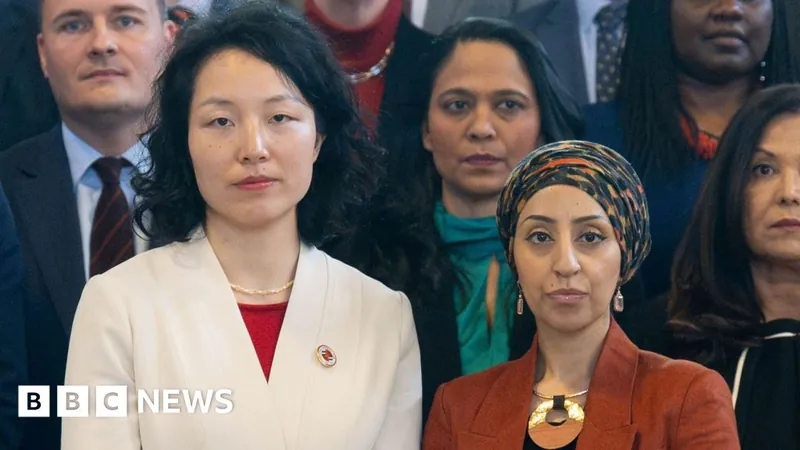
British MPs Denied Entry to Israel: A Controversy Over Censorship and Political Control
2025-04-07
Author: Ling
Introduction
Abtisam Mohamed, a Labour MP, expressed her outrage following the Israeli government's refusal to allow her and fellow MP Yuan Yang to enter the country. This decision, she claims, underscores a troubling trend of censorship and control influencing diplomatic relations.
The Incident
During their scheduled visit to Israel and the occupied West Bank as part of a parliamentary delegation, the MPs were detained at the airport before being sent back to the UK. This incident marks a significant moment, as Foreign Office Minister Hamish Falconer indicated it may be the first time a British MP has been denied entry into Israel—a move that has raised serious concerns in the UK Parliament.
Statements from the MPs
In a powerful statement, Mohamed stated that their denial of entry was based on their political beliefs, which they assert align with international law. "This act was not just a diplomatic affront. It was about control and censorship," she emphasized, highlighting a deeper issue surrounding the freedom of political expression in international diplomacy.
Yang, representing Earley and Woodley, acknowledged the potential risks associated with visiting the region but expressed disbelief that they would face detention and deportation from a country that is traditionally viewed as an ally of the UK. "People are watching us, and our voices must not be silenced," she added, calling for an unwavering commitment to free speech.
UK Government Response
The response from the UK government regarding the incident has been mixed. Conservative leader Kemi Badenoch defended Israel's right to manage its borders, a remark that stirred controversy and was labeled "disgraceful" by Foreign Secretary David Lammy. Despite criticism, Badenoch maintained her position, supported by Conservative shadow Foreign Office spokesperson Wendy Morton. She remarked that visitors to Israel must be aware of the risks involved, especially those who have voiced criticism of the Israeli government.
Concerns Raised by Other MPs
Falconer expressed astonishment at Morton's comments and reiterated that while Israel has the right to control entry, the MPs were cleared for travel beforehand, meaning their detention seemed unwarranted.
As tensions rise, Liberal Democrat MP Monica Harding expressed her dismay over Morton's statements and brought attention to disturbing reports from the BBC concerning the mistreatment of Palestinian detainees by Israeli military and prison staff. Despite the allegations, the Israel Defense Forces have issued a firm denial, rejecting claims of systematic abuse.
Conclusion
This incident raises pivotal questions about the balance of free speech and diplomatic relations between the UK and Israel, with implications that could resonate beyond the immediate political landscape. As discussions continue, the international community will be watching closely to see how this situation unfolds and what it may mean for future parliamentary visits to the region.





 Brasil (PT)
Brasil (PT)
 Canada (EN)
Canada (EN)
 Chile (ES)
Chile (ES)
 Česko (CS)
Česko (CS)
 대한민국 (KO)
대한민국 (KO)
 España (ES)
España (ES)
 France (FR)
France (FR)
 Hong Kong (EN)
Hong Kong (EN)
 Italia (IT)
Italia (IT)
 日本 (JA)
日本 (JA)
 Magyarország (HU)
Magyarország (HU)
 Norge (NO)
Norge (NO)
 Polska (PL)
Polska (PL)
 Schweiz (DE)
Schweiz (DE)
 Singapore (EN)
Singapore (EN)
 Sverige (SV)
Sverige (SV)
 Suomi (FI)
Suomi (FI)
 Türkiye (TR)
Türkiye (TR)
 الإمارات العربية المتحدة (AR)
الإمارات العربية المتحدة (AR)